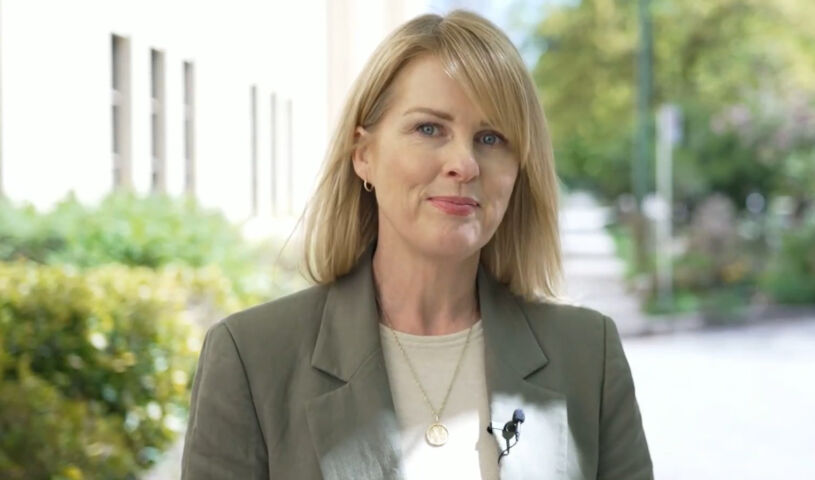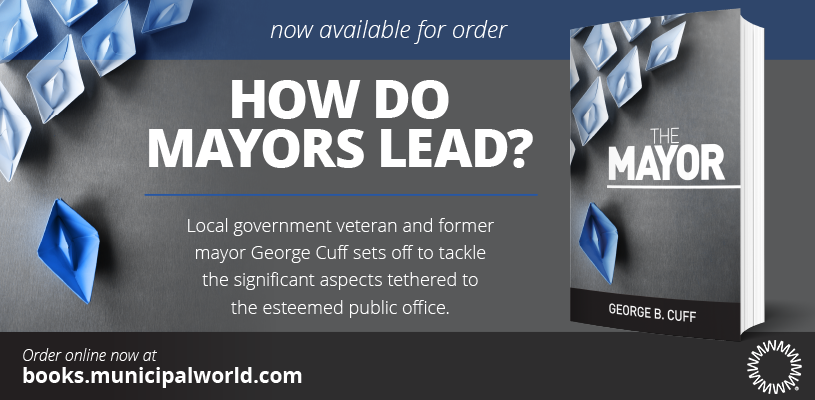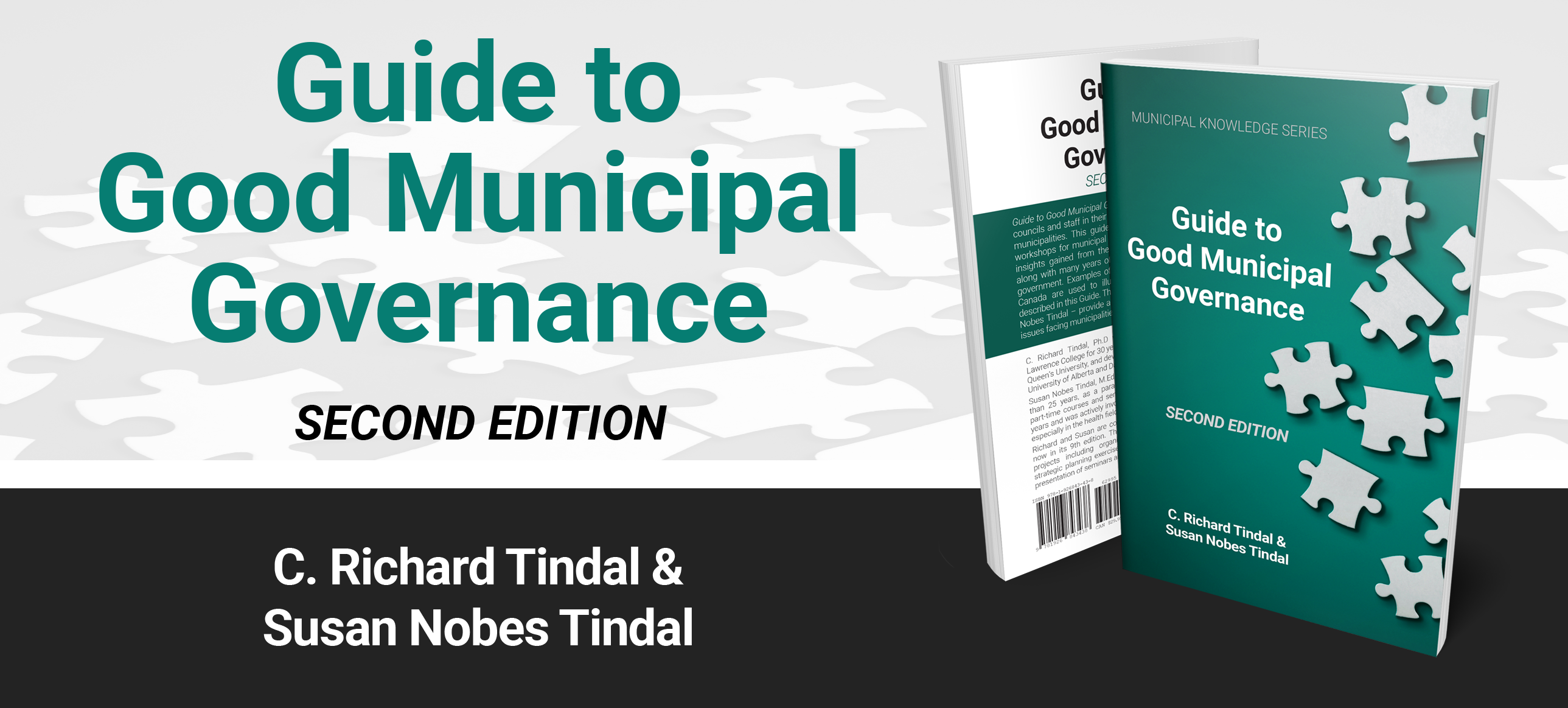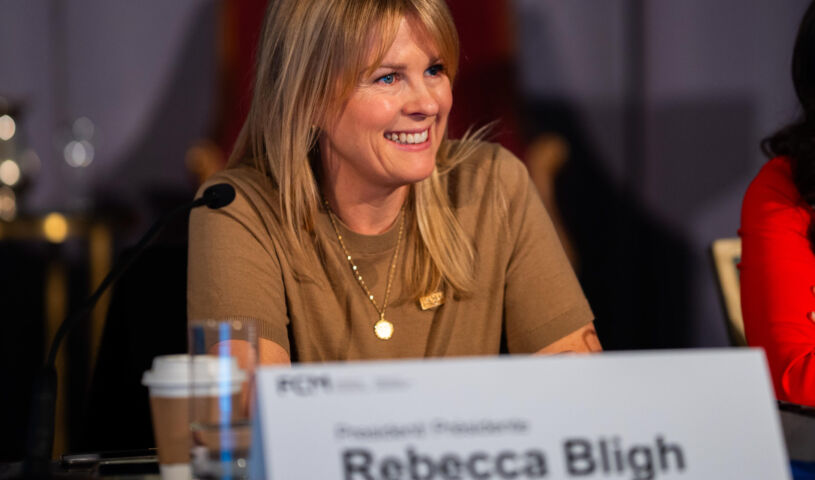Following Carney’s win, FCM looks to strengthen partnerships
 Rebecca Bligh, a Vancouver city councillor and Federation of Canadian Municipalities president, said she is encouraged by the newly re-elected Liberal government’s promises to work with local governments. Photo: FCM YouTube
Rebecca Bligh, a Vancouver city councillor and Federation of Canadian Municipalities president, said she is encouraged by the newly re-elected Liberal government’s promises to work with local governments. Photo: FCM YouTube
During the recent federal election campaign, the Federation of Canadian Municipalities (FCM) worked to ensure all political parties saw local governments as credible partners in national leadership.
Ironically, FCM may owe some credit to the actions of U.S. President Donald Trump for highlighting the crucial role of municipal leadership in shaping Canada’s new economic reality.
“The actions of our neighbours down south gave a unique platform for FCM to show our ability to convene groups to do the tough work of recognizing something unexpected like this trade war,” said Rebecca Bligh, a Vancouver city councillor and FCM president. “This was as an opportunity to illustrate how important municipalities are to our economic sovereignty as a country. FCM really was able to get our message out – and we believe it was heard, because we saw a lot of our priorities in some of the platforms.”
Strengthening Connections
A sizable portion of the federal campaign revolved around Trump’s tariffs. That said, FCM also worked to push other municipal priorities to the various party leaders.
To address long-overdue challenges facing municipalities, FCM is advocating for a structural discussion on how Canada facilitates economic growth. Bligh emphasizes the necessity of a modern National Prosperity Partnership among all orders of government. This partnership would align Canadians’ priorities while updating the country’s outdated municipal fiscal framework.
Bligh said a structured conversation is needed so that municipalities aren’t reacting to whatever storm they’re weathering on a given day. She pointed to the COVID-19 pandemic as an example of why stimulus programs and one-off, ad hoc investments in municipalities fail to provide the long-term stability that Canadians need.
Bligh said this could be a “jumping off point” to highlight how important investment in municipalities is, along with what they’re investing in.
“We’re talking about housing affordability, infrastructure, what we’re now calling trade-enabling infrastructure, and breaking down some of those interprovincial barriers that prevent easy flow of business and procurement across our country,” Bligh said. “Municipalities and FCM members want this. They recognize that the opportunity is now to reflect we’re in a modern world and our fiscal framework is not of modern times. So it is time to go back to the table and have that conversation.”
Housing Is Important, Infrastructure Is Key
Prime Minister Mark Carney often emphasized the importance of strengthening the provincial framework. Bligh said it was encouraging to see municipal priorities become more visible in party platforms and talking points.
Bligh said it was encouraging to see a growing sense of unity among “most of our provinces” toward a Team Canada approach. She noted that this perspective highlights the importance of recognizing the vital role every order of government plays in shaping the country’s future prosperity.
Bligh further stressed the importance of addressing public safety, improving nationwide cellular and broadband connectivity, and ensuring equal access to essential services. She also highlighted the need for enhanced mental health supports and more efficient emergency response times.
Bligh expressed optimism on Carney’s stance on housing affordability. This wasn’t just in terms of affordability, but also in the commitment to increasing housing supply. The federal Liberal platform set a target of 500,000 new homes per year across the country.
She also noted a clear interest in exploring innovative technologies, such as prefabrication and climate-resilient construction, to build homes faster and more durably.
While these conversations are crucial, Bligh emphasized that municipal infrastructure must remain a top priority. As FCM has repeatedly pointed out, municipalities manage more than 60 per cent of the country’s core infrastructure yet receive only eight to 10 cents of every tax dollar to maintain it.
That, she said quickly, is simply not sustainable.
“If we want to build housing, we have to flush a toilet. So, we need infrastructure investment, and we saw that identified in many of the platforms, particularly the federal Liberals,” Bligh said. “Given the outcome of the federal election, we’re going to make sure that we have that shortlist when we get to meet with the new MPs and the prime minister in the coming weeks and months.”
Growing National Partnerships
Following the results of the election, and the win by the federal Liberals, FCM released a statement congratulating the prime minister. In the statement, Bligh congratulated Carney on his win at this “critical moment” in the country’s history.
FCM is committed to collaborating with all political parties and MPs, because “we are stronger together,” Bligh said. But that doesn’t mean FCM is going to let up on the pressure being applied.
Bligh said it is on FCM as the representative of Canadian municipalities to highlight the need to empower local governments and to invest in municipalities. After all, municipalities “are the enablers of all of those priorities that the federal government is bringing in.” This, she said, goes for everything from manufacturing to agriculture, but also includes the roads that are needed to transport these goods.
These are the foundational pieces that municipalities manage. And so FCM wants to ensure it is working in lockstep with Ottawa so that the federal government can deliver on their platform promises.
Bligh said FCM has long worked at modernizing the fiscal framework for municipalities. As this focus sharpened, the Municipal Growth Framework evolved into the National Prosperity Partnership. FCM has also been refining the structure of discussions around a partnership that brings provincial, federal, and municipal governments together to shape a new and prosperous future for Canada.
“Our prime minister, Mark Carney, comes to the table with quite a lot of experience when it comes to negotiating, rethinking, and looking at different economic levers that we can pull in our different contexts and now federal government,” Bligh said. “I hope that we have the right partner now leading the federal government that could even help us unlock different ways to be thinking about what that prosperity partnership could look like.”
Shaping the Future
That partnership that Bligh talks about has, according to her, some proven models to draw upon.
One of them, the Canada Community Building Fund, is what Bligh describes as a “revered fund” for municipalities. Bligh acknowledges that over the last 10 years under the Liberals, that fund has twice been doubled in size. FCM is asking for a permanent doubling of the fund.
This way every community across the country can know where to invest. It would go a long way, Bligh said, to ensuring that municipalities have their bases covered. This goes from the smallest communities that are struggling to maintain local transit to large urban centres that need help with the widening infrastructure gap.
Bligh pointed to Vancouver as an example. The city has wastewater treatment plants that council must plan to renew over the next 10 to 15 years. These projects, she said, do not happen overnight and they certainly don’t get funded overnight.
She said city council must also have a long-term outlook where a major seismic event could be catastrophic for a deteriorating core infrastructure utility such as a wastewater treatment plant.
Then, of course, the city – like many municipalities – is struggling with rising homelessness. This goes together with a deterioration of the types of supports that can help people be the best they can be.
“We’re more likely to find folks falling into difficult times and coping with addiction and things like that. So we really need to be hopeful,” Bligh said. “People are relying on us to be hopeful but also not detached from reality. So we are going to go in with eyes wide open. We’re clear on the message, and we’re also open to what that this could look like when we work together.” MW
✯ Municipal World Executive and Essentials Plus Members: You might also be interested in Kara Smith’s article: Even small municipalities can do big things.
Sean Meyer is digital content editor for Municipal World.
Related resource materials:



